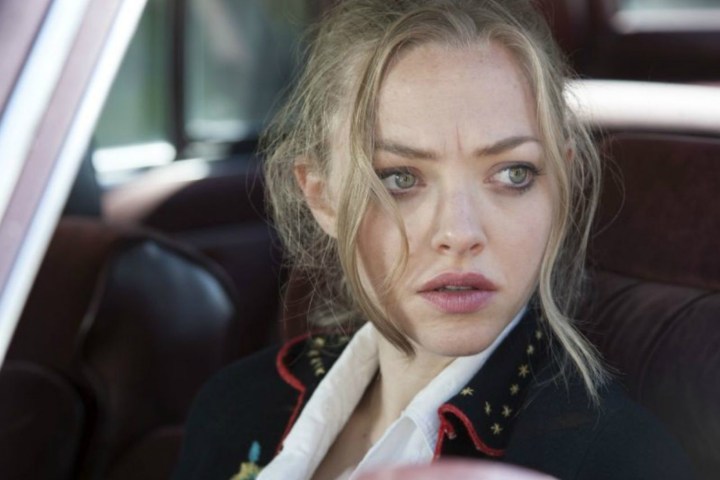
At this point, more than halfway through The Return’s run, it seems less and less likely that Cooper will make a return in any traditional sense. And that might be for the best. The “Damn good” pie moment exemplifies just how different this show is from other recent television revivals, which are one of the dominant trends in recent years. Shows like The X-Files, Gilmore Girls, and 24 have all returned after years off the air, and those revivals have tended to give the people what they want, which is to say familiar characters, winks, and nods to iconic scenes; they celebrate nostalgia.
The Return has made a point of withholding such moments, or else providing them in a context that saps them of their potential for nostalgia. Moments like Dougie chewing pie or the revelation that Bobby and Shelley had a child together aren’t designed to produce social media tittering.
Part 11 doesn’t provide warm callbacks, but it does offer a familiar tone, a checkerboard pattern of horror and comedy, that feels like a natural evolution of the old show.
Bobby and Shelley: The same old mistakes?
After a long stretch of episodes set anywhere but the titular town, The Return has begun to refocus on Twin Peaks, a town where time seems to have had only a light touch. The Double R Diner is still in business, still manned by Shelley (Madchen Amick) and Norma (Peggy Lipton), and the Roadhouse is still the hot spot for youths looking to catch a show or buy drugs on a Friday night.
Some things have changed, at least a little. Bobby Briggs (Dana Ashbrook) has cleaned up his act, becoming a member of the sheriff’s department and, as Part 11 reveals, a father to none other than Becky, Shelley’s daughter with the abusive husband.
That Bobby and Shelley got married — Carl calls her Shelley Briggs — and had a kid is is the type of thing fans generally clamor for in a revival, but The Return almost immediately poisons the sweet revelation. Bobby and Shelley have brought Becky to the diner after she stole her mom’s car and tried to shoot her husband, whom she learned was having an affair.
As they try to convince her to accept their help, Red (Balthazar Getty), the drug kingpin with a penchant for magic tricks, shows up, and Shelley skips out to kiss him; her marriage to Bobby has already ended, and she’s gone back to her bad habit of dating bad guys.
Their daughter is almost a vessel for their flaws. Like her father, Becky is involved in drugs, and like her mother she has fallen for a dangerous man. Sins are passed down through the generations in Twin Peaks, and that point is driven home by the turn the scene takes. As Shelley returns to an aghast Bobby and Becky, a bullet crashes through a diner window. Crouching, Bobby makes his way outside to apprehend the shooter, only to stumble upon another family drama.

A child fired the gun, having found it in his father’s car. The mother berates the father, who seems more irritated than horrified by the situation. After confiscating the revolver, Bobby looks at the son, clad in a camo jacket and hat, hand-on-hip as he stares defiantly. Bobby’s gaze turns to the father, wearing the same outfit, who turns his head away.

It’s a keen visual reminder of how problems carry down through the ages. Part 11 emphasizes the dark flip side to nostalgia, that the world doesn’t change enough or all that quickly, and that the bad aspects of the past remain just as strong as the good.
Still, Bobby at least seems to have changed, and that by itself rings a note of hope in a world where stagnation or decay are all around.
Editors' Recommendations
- Wait, David Lynch directed a commercial for the Sony PlayStation?
- Steven Spielberg casts David Lynch in The Fabelmans


